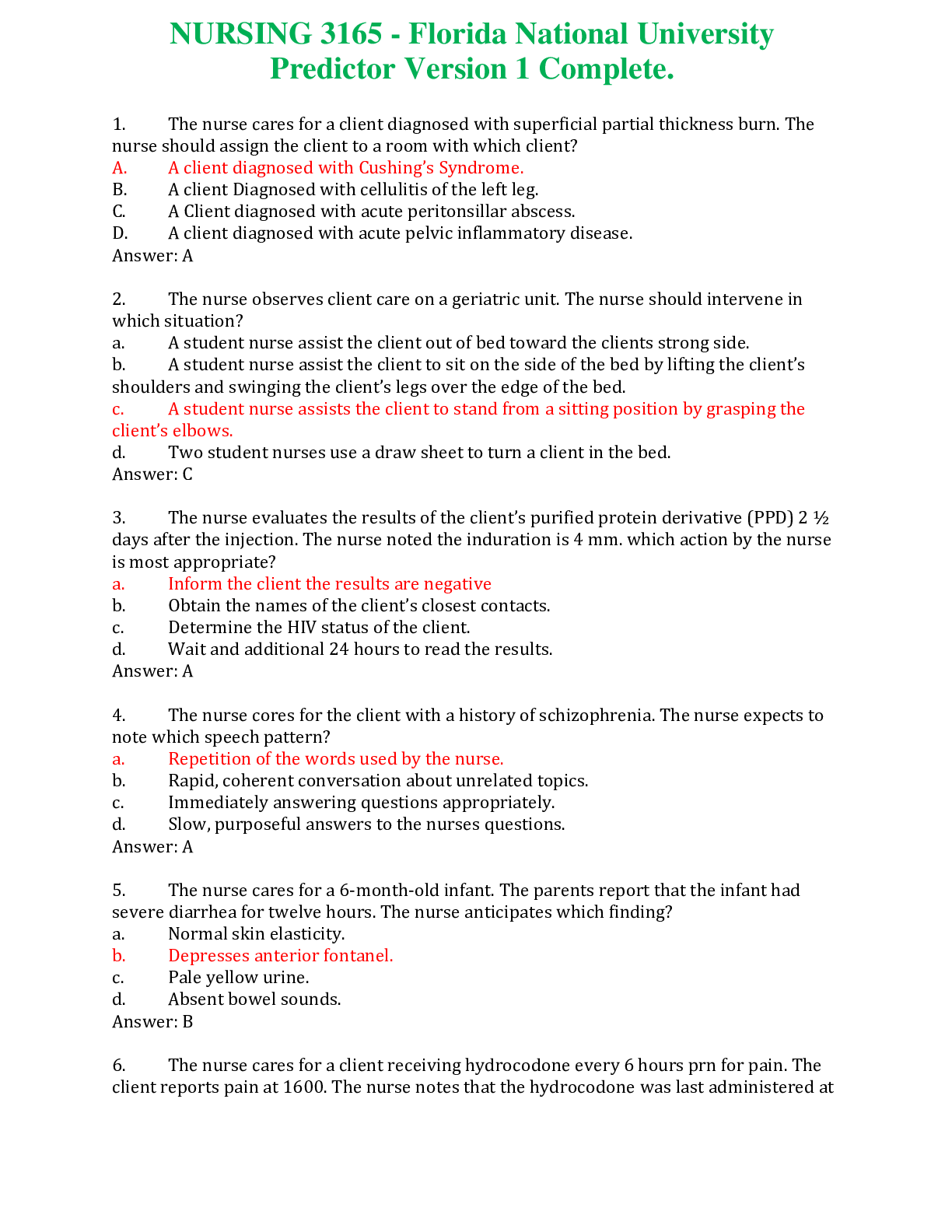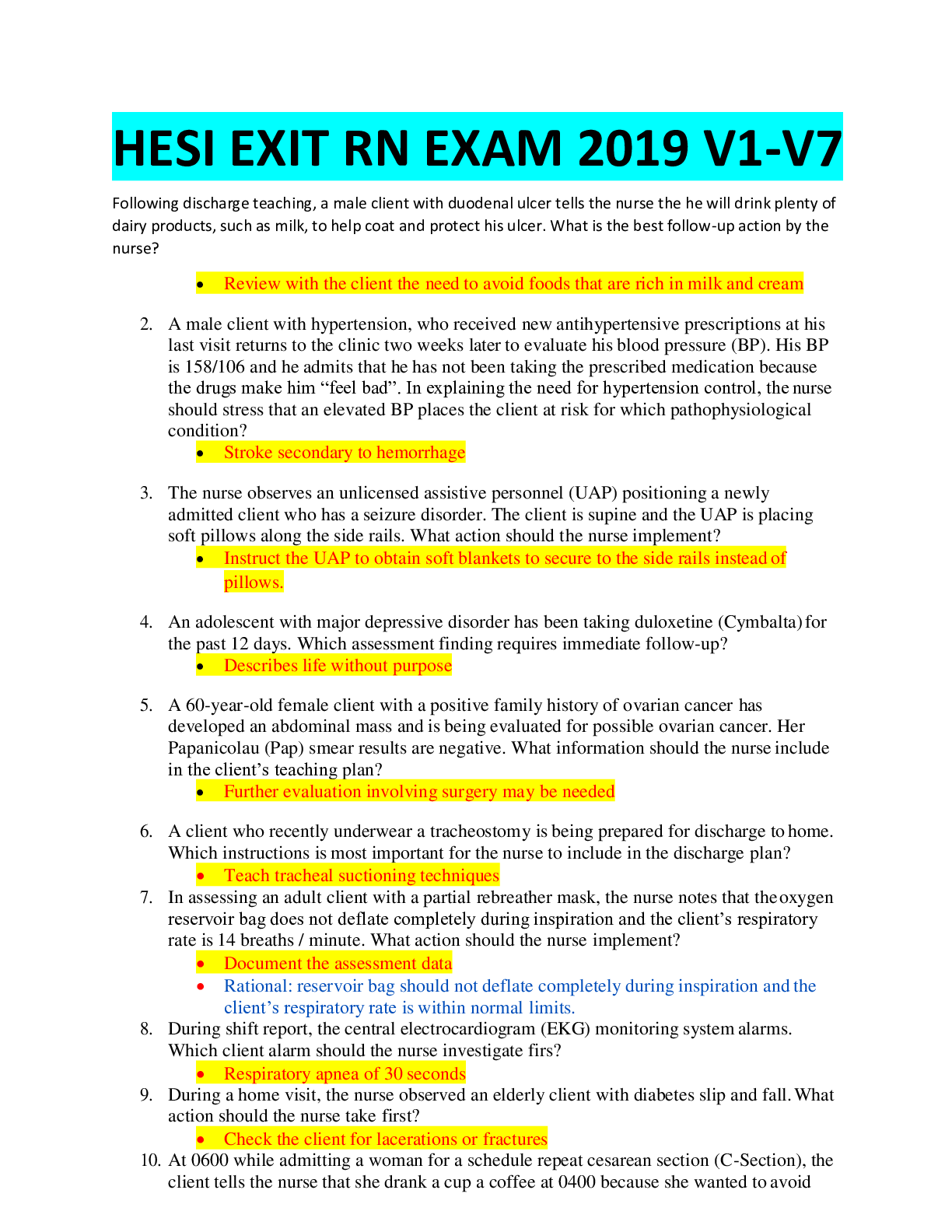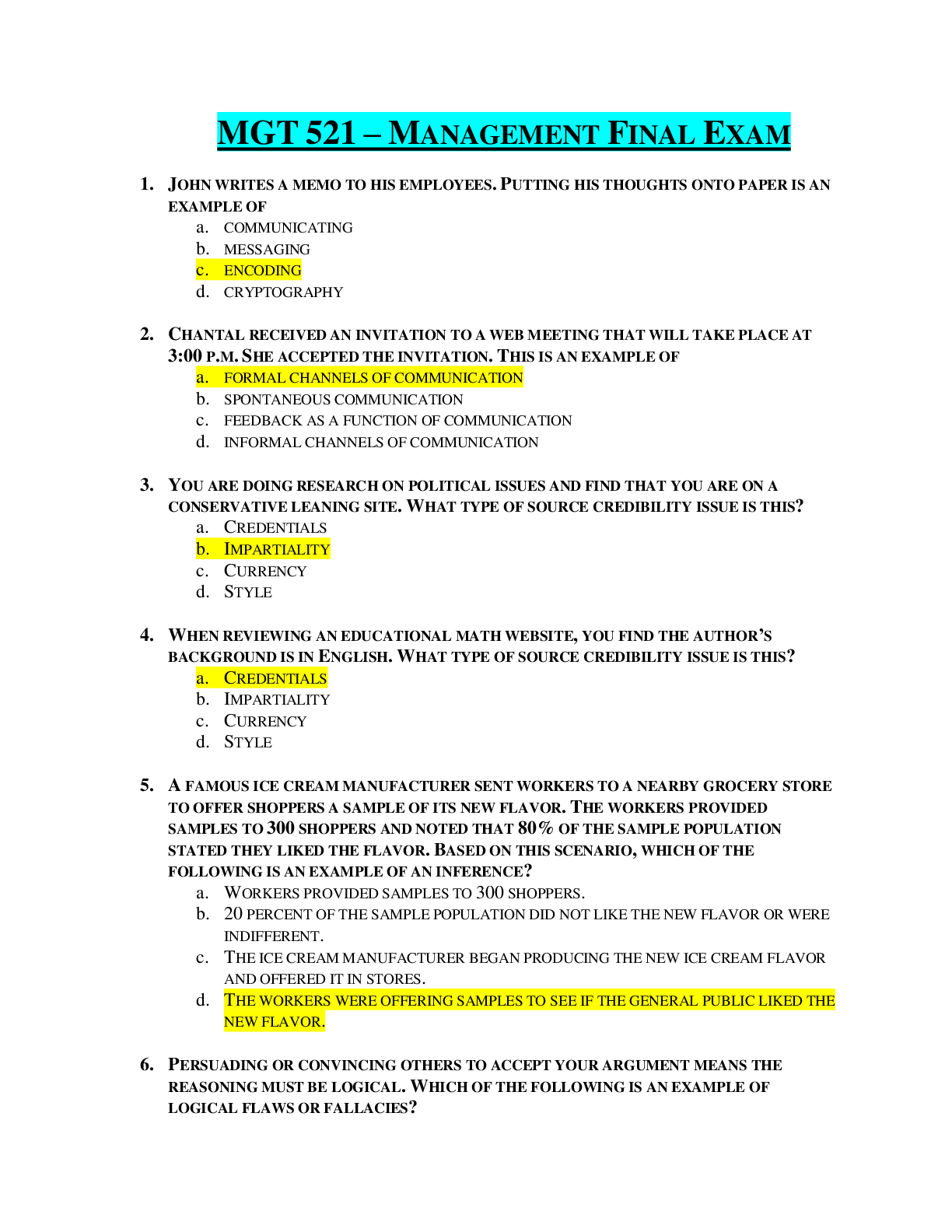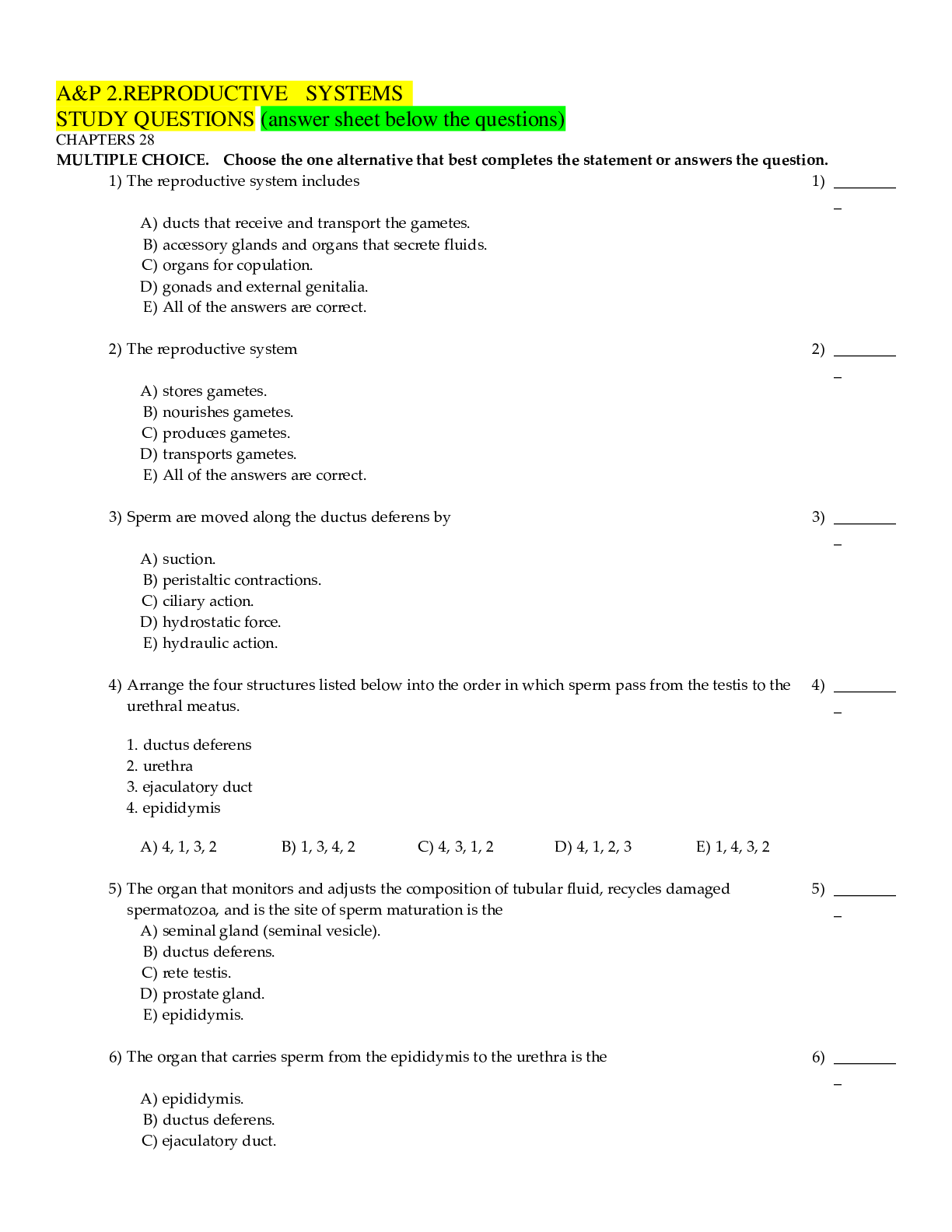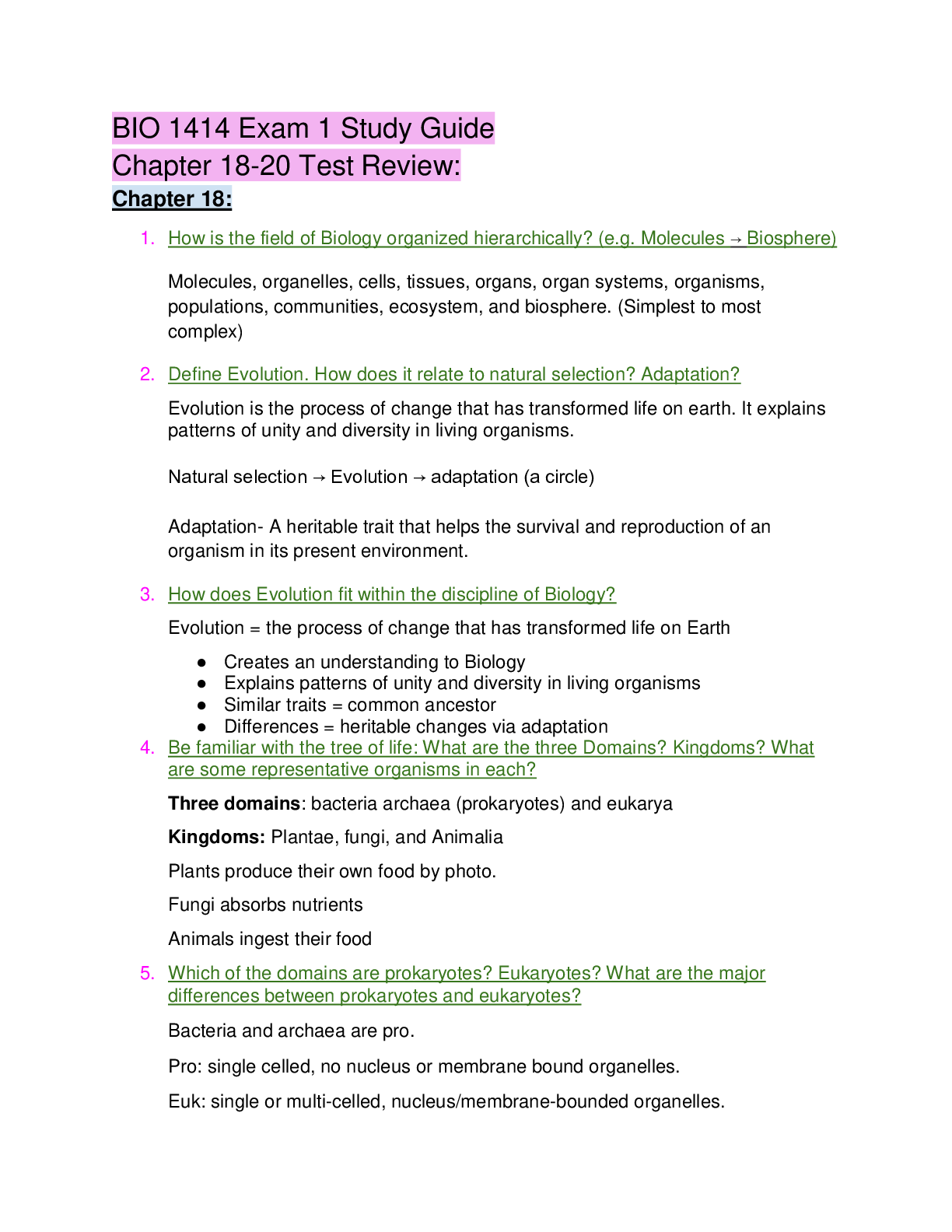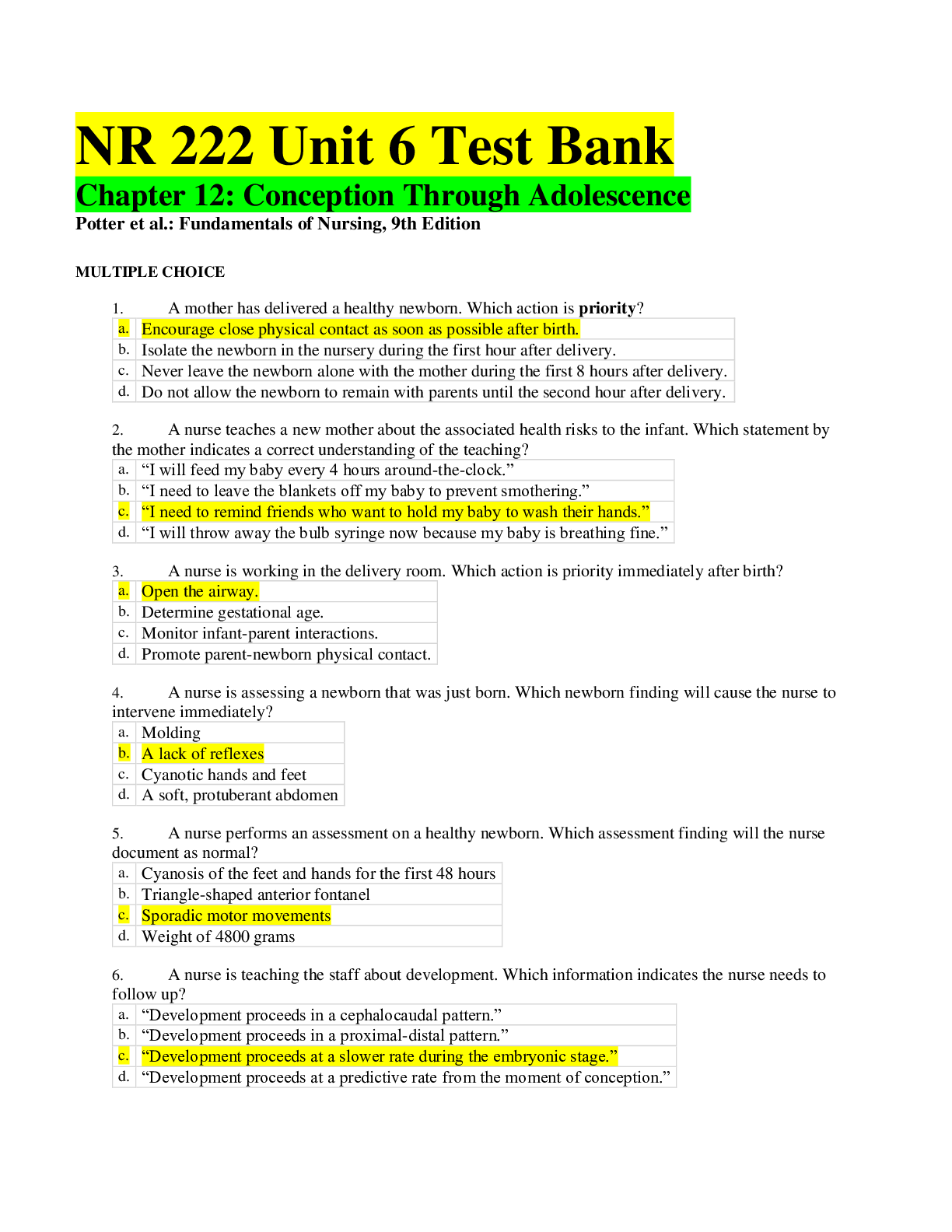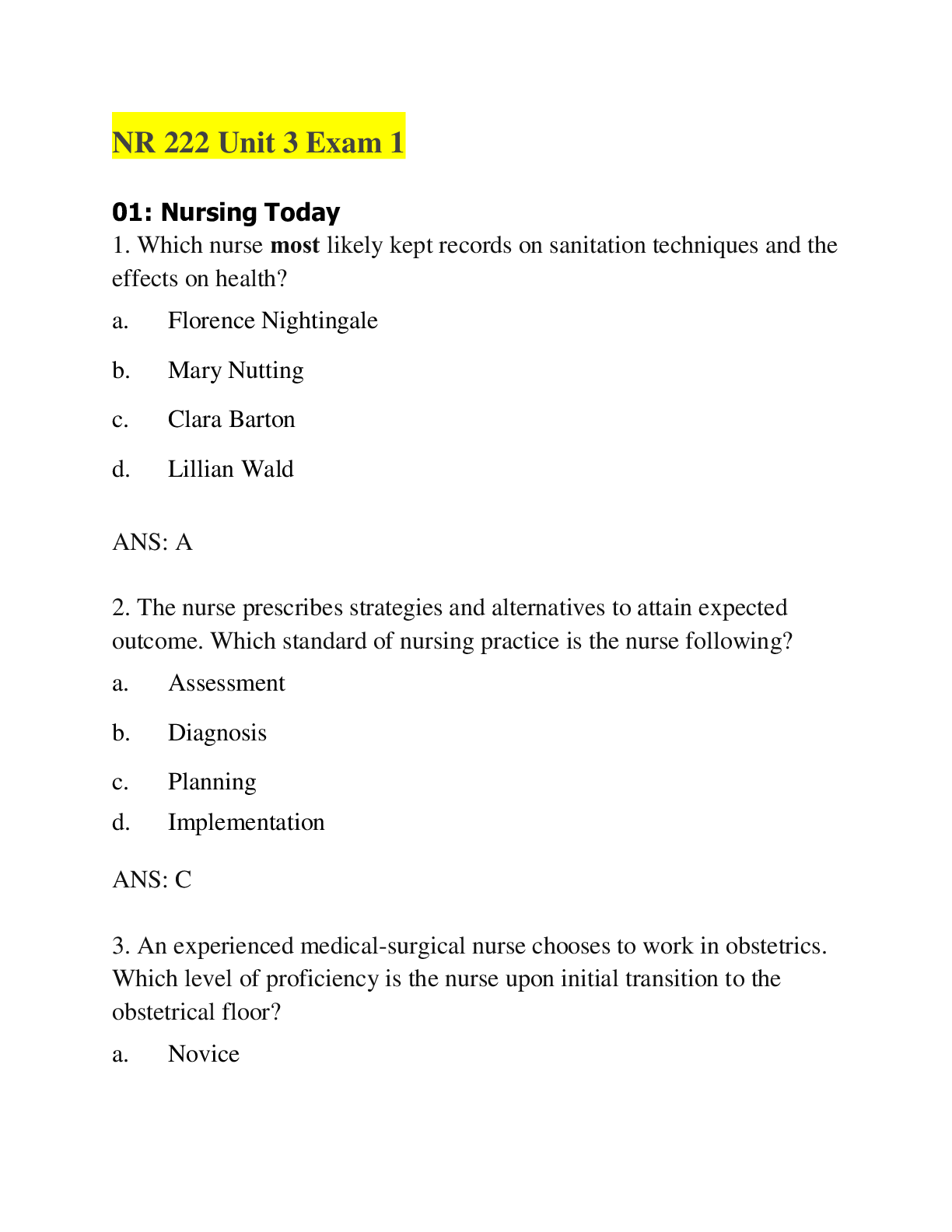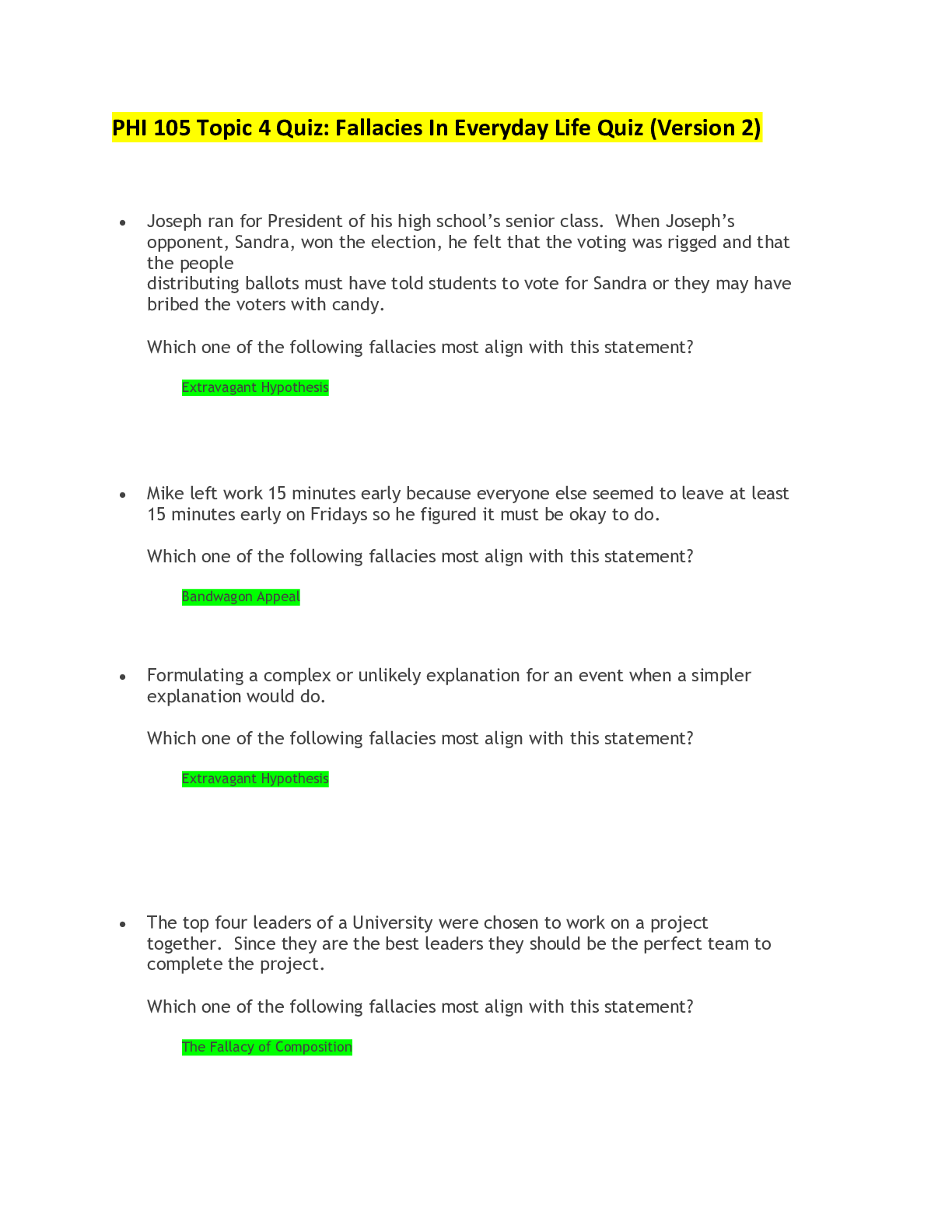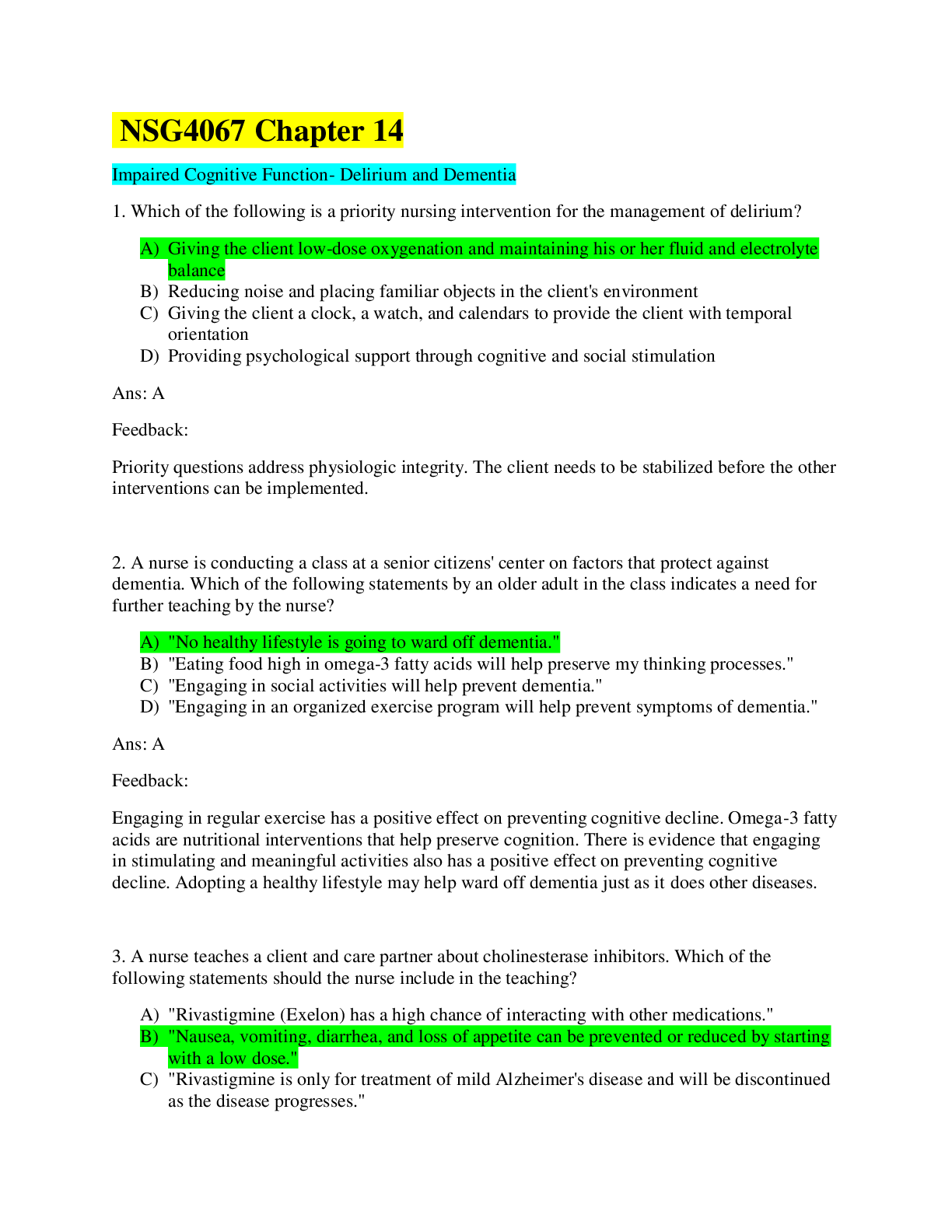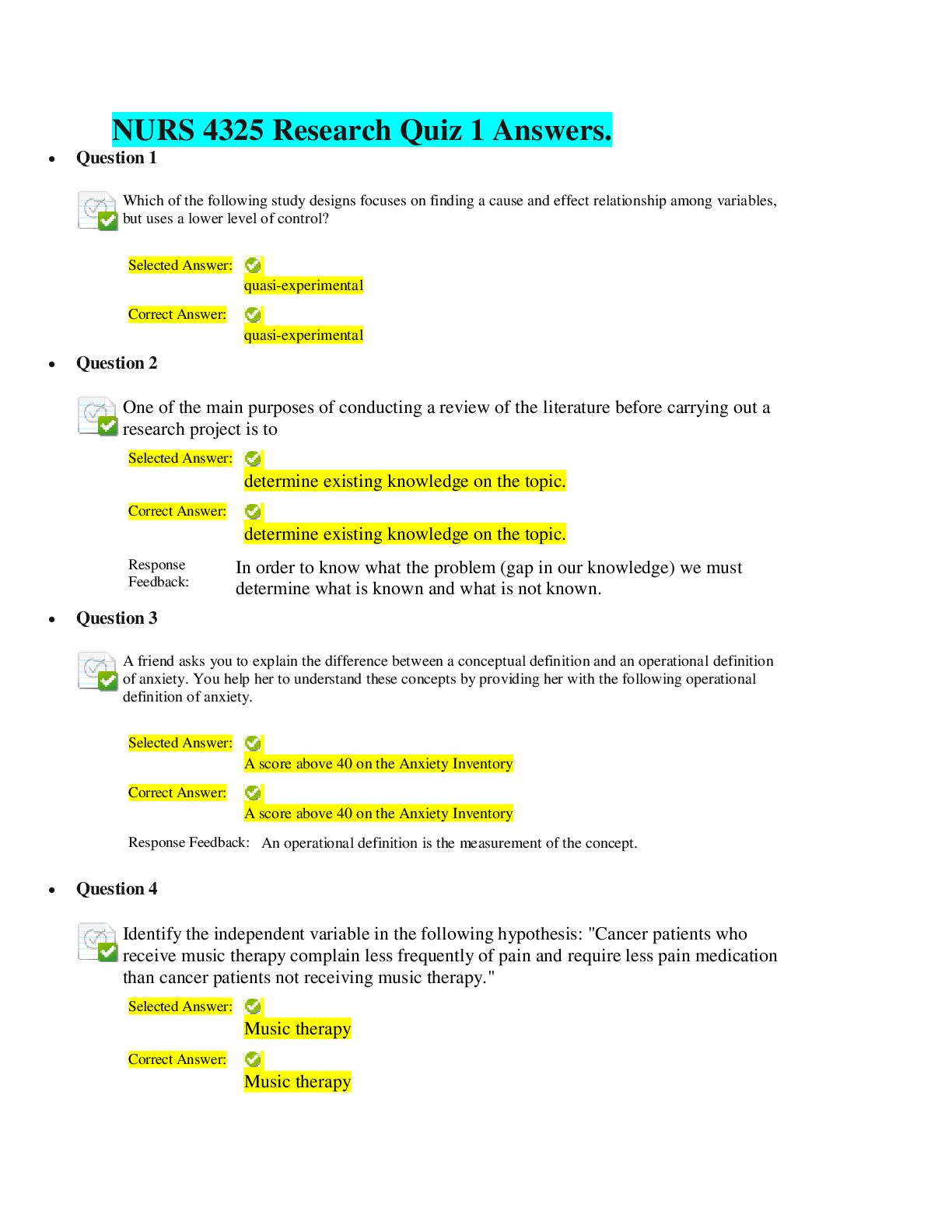BioChemistry > QUESTIONS & ANSWERS > WGU C785 Biochemistry Unit Exam Questions & Answers 2022 (All)
WGU C785 Biochemistry Unit Exam Questions & Answers 2022
Document Content and Description Below
WGU C785 Biochemistry Unit Exam Questions & Answers 2022 Which level of protein structure is disrupted through the hydrolysis of peptide bonds? Quaternary Tertiary Primary Secondary - Primary T... he primary structure of a protein is the sequence of amino acids held together by peptide bonds. Peptide bonds are formed by dehydration reactions and disrupted by hydrolysis. A mutation in the beta-hemoglobin gene, which results in the replacement of the amino acid glutamate in position 6 with the amino acid valine, leads to the development of sickle cell anemia. The structures of glutamate and valine are shown below. If the beta hemoglobin gene in a patient with sickle-cell anemia were to be edited so that the valine in position 6 was replaced with a different amino acid, which replacement for valine would be expected to have the best clinical outcome, in theory, for the patient? (Assume the valine can potentially be replaced with any amino acid other than glutamate.) - The original amino acid in a healthy patient is glutamate, which is negatively charged. The mutated amino acid is valine, which is non-polar. Valine is causing sickle cell anemia. The best amino acid to replace valine so that the patient is healthy again would be the one most like glutamate, so any negatively charged amino acid. Secondary, tertiary, and quaternary levels of protein structure can all be impacted by exposing a protein to which treatment? Change of a hydrophobic amino acid to a different hydrophobic amino acid Addition of a reducing agent Placement of the protein in a solution with a low pH Increase in the concentration of the protein in solution - Placement of the protein in a solution with a low pH Changes in pH affect hydrogen bonds and ionic bonds. Hydrogen bonds in the backbone of amino acids occur in secondary structure, and both hydrogen bonds and ionic bonds occur in the side chains of amino acids in tertiary structure. An increase in beta-pleated sheet structure in some brain proteins can lead to an increase in amyloid deposit formation, characteristic of some neurodegenerative diseases. What is the primary biochemical process that follows the increase in betapleated sheet structure that leads to the development of the amyloid deposits? An increase in glycogen formation in the brain cells Aggregation of the proteins in the brain [Show More]
Last updated: 1 year ago
Preview 1 out of 26 pages
Instant download
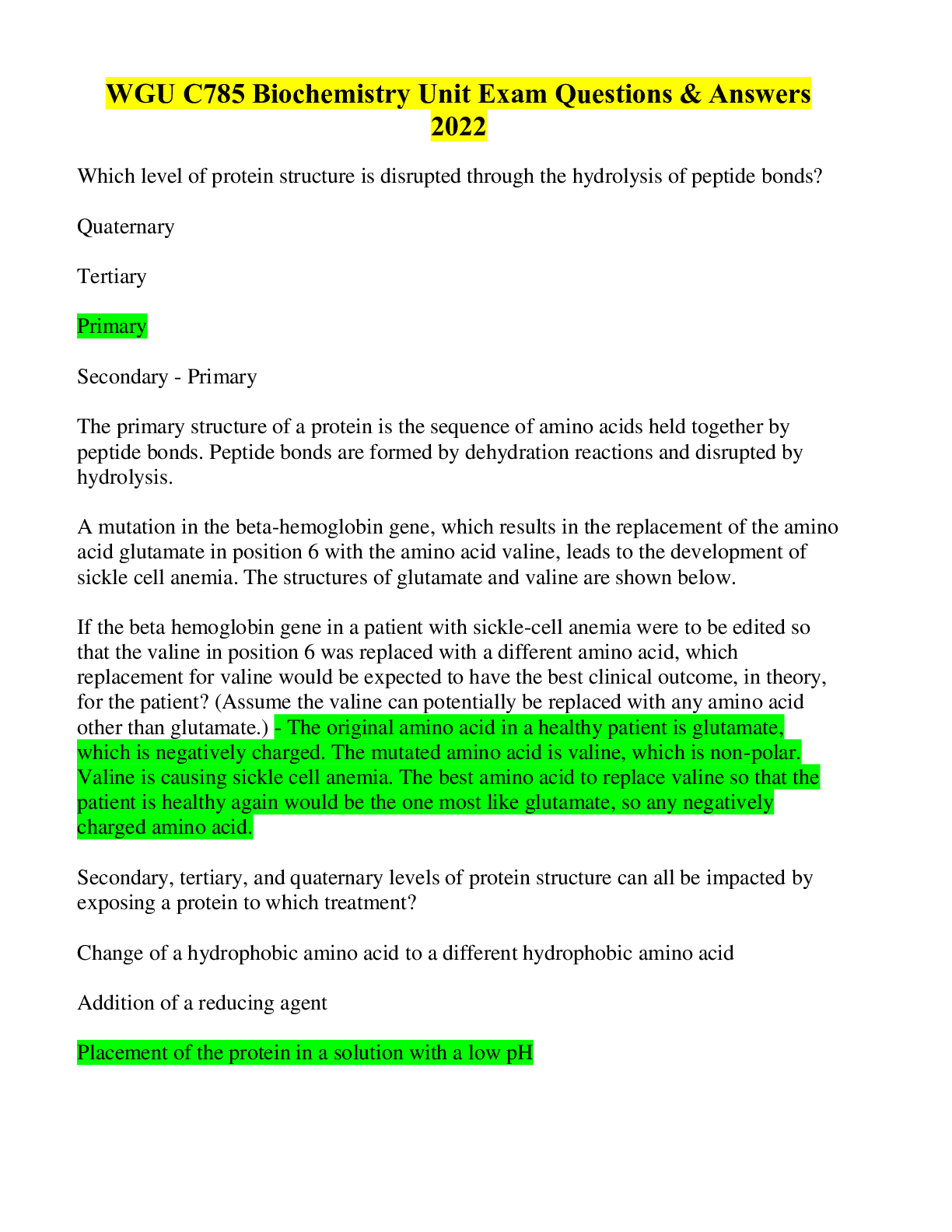
Buy this document to get the full access instantly
Instant Download Access after purchase
Add to cartInstant download
Reviews( 0 )
Document information
Connected school, study & course
About the document
Uploaded On
Jul 19, 2022
Number of pages
26
Written in
Additional information
This document has been written for:
Uploaded
Jul 19, 2022
Downloads
0
Views
25

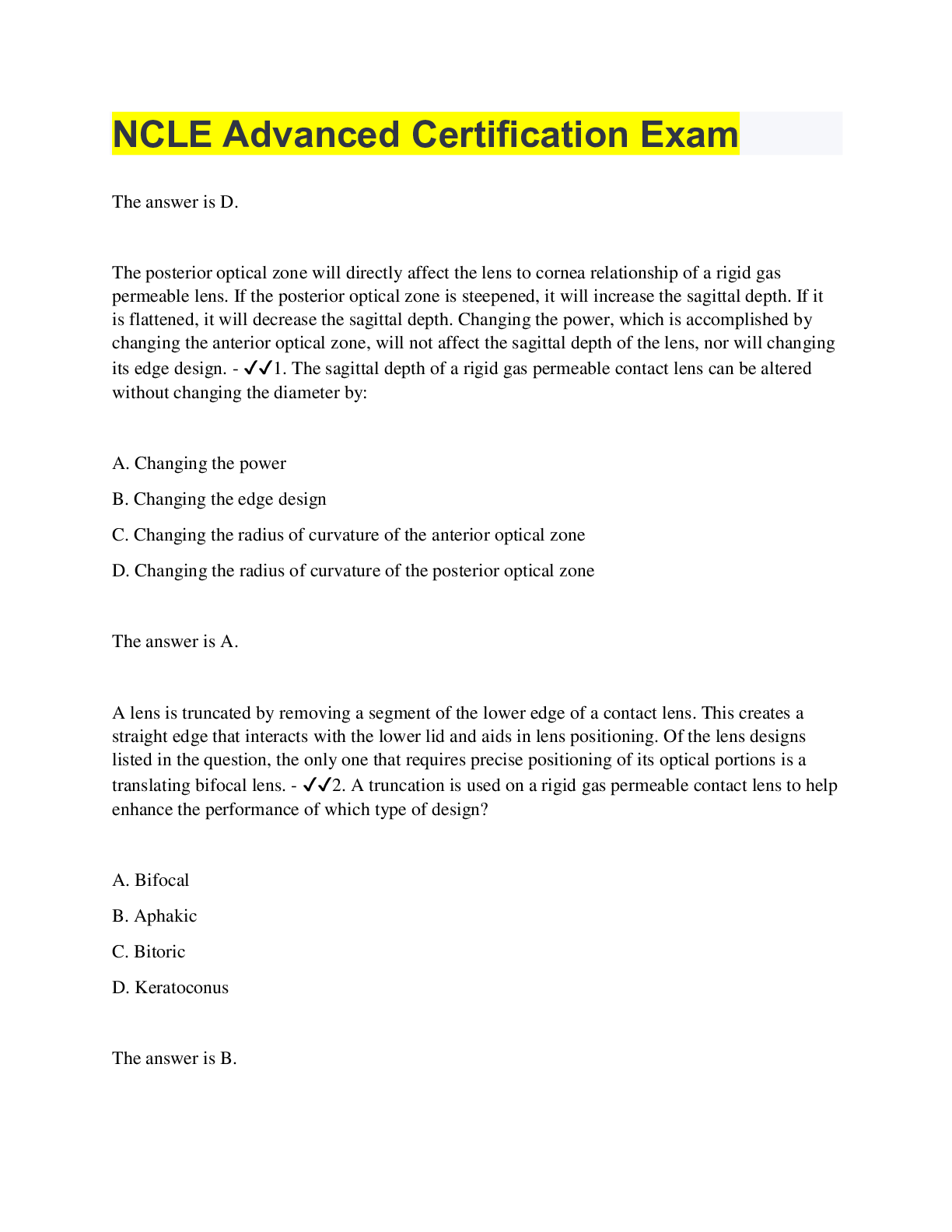

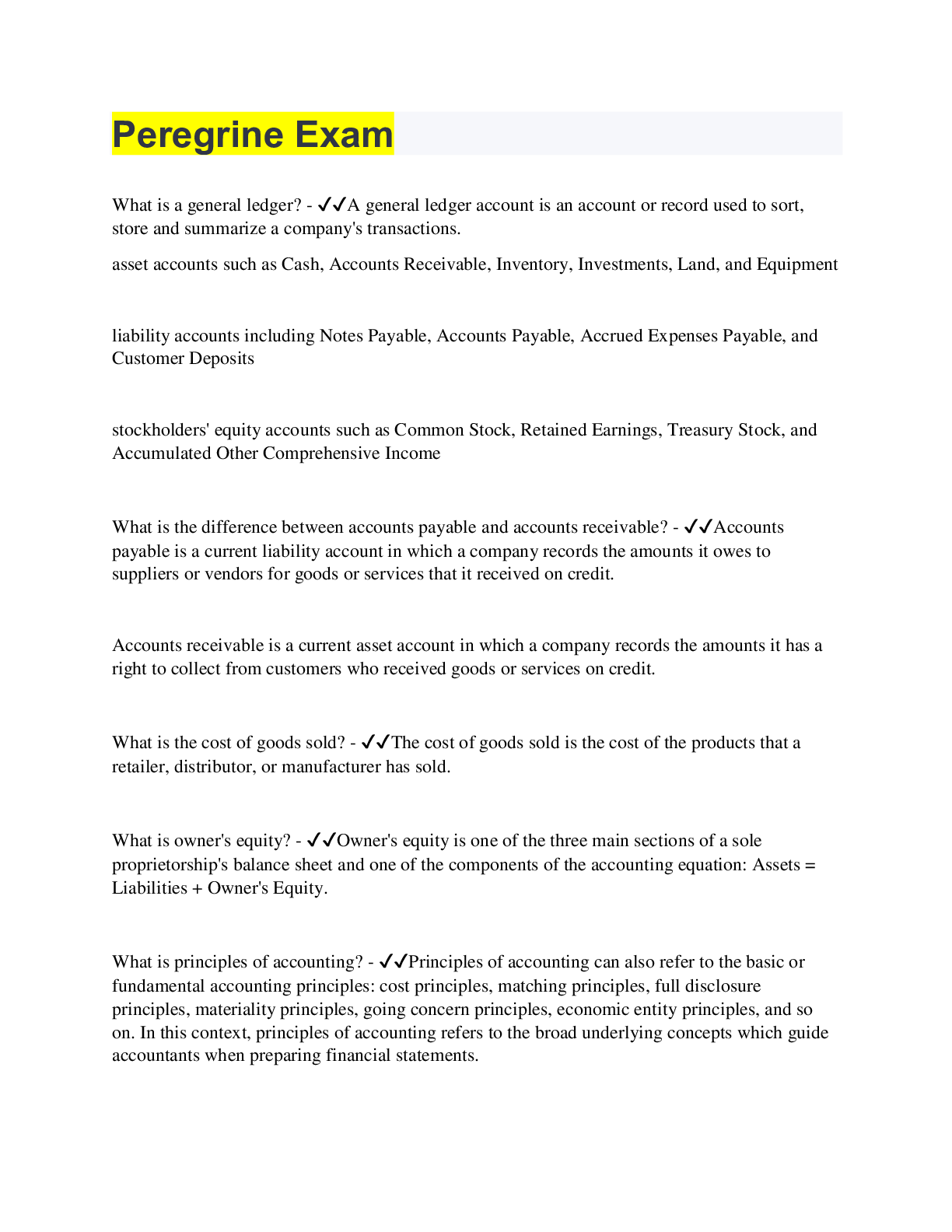
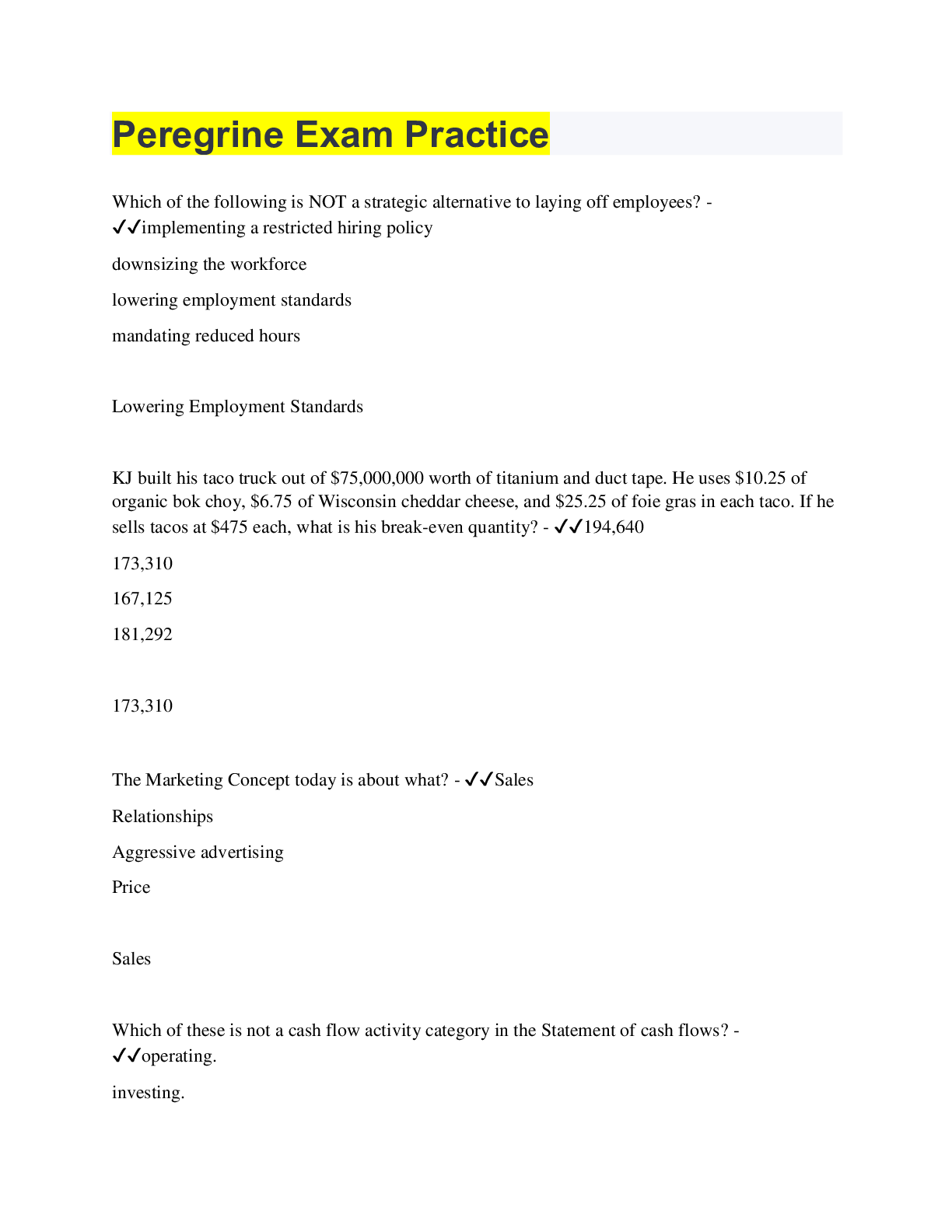

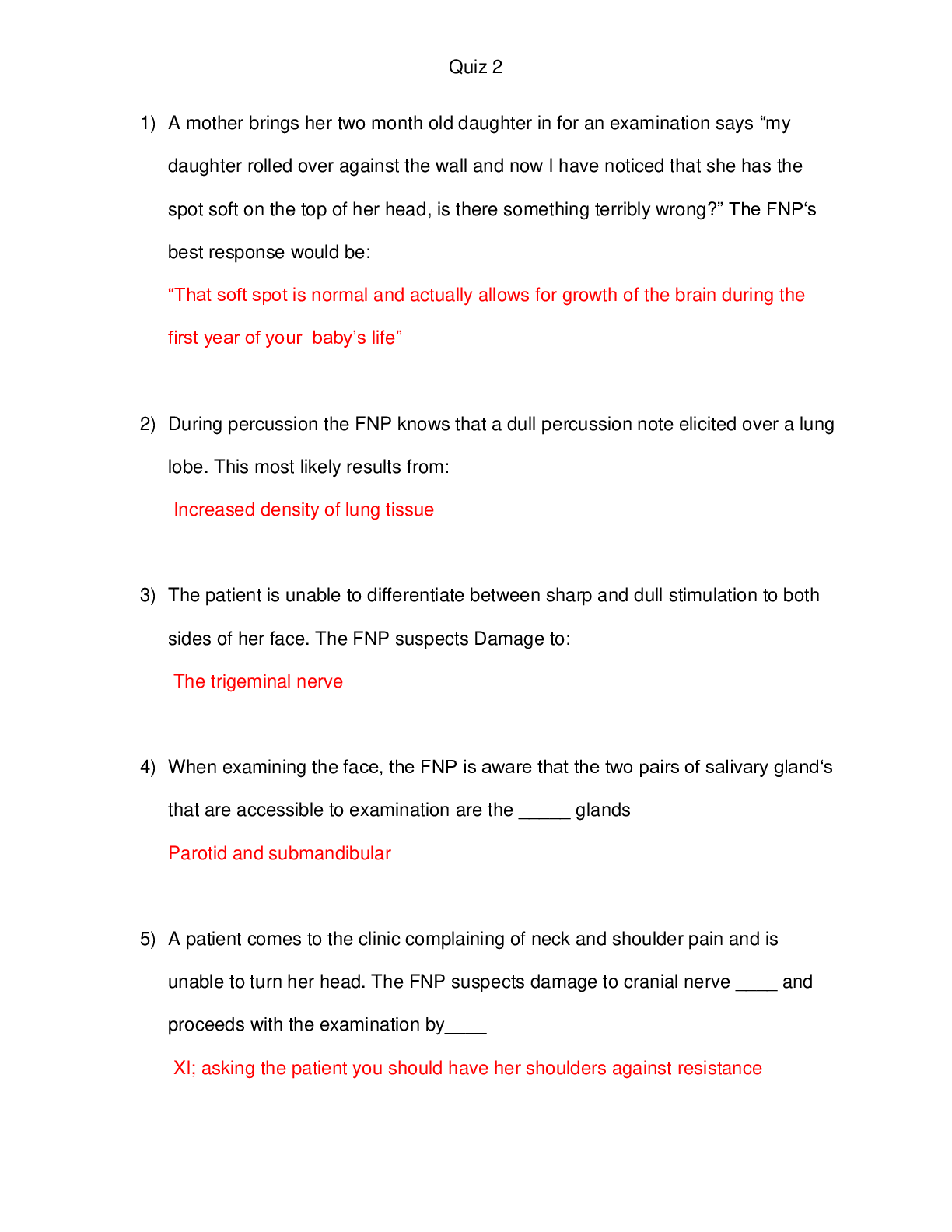



.png)
